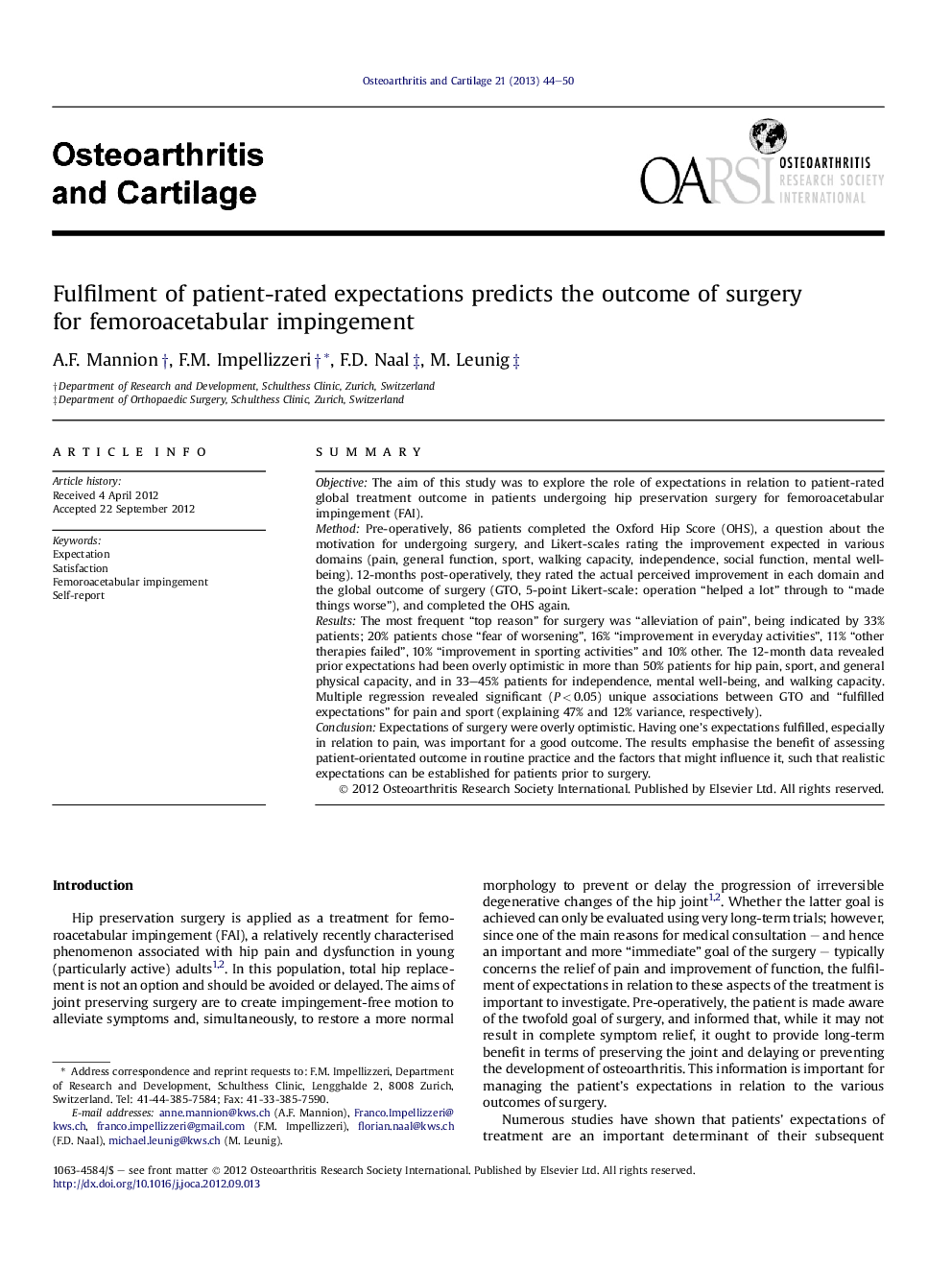| Article ID | Journal | Published Year | Pages | File Type |
|---|---|---|---|---|
| 3379614 | Osteoarthritis and Cartilage | 2013 | 7 Pages |
SummaryObjectiveThe aim of this study was to explore the role of expectations in relation to patient-rated global treatment outcome in patients undergoing hip preservation surgery for femoroacetabular impingement (FAI).MethodPre-operatively, 86 patients completed the Oxford Hip Score (OHS), a question about the motivation for undergoing surgery, and Likert-scales rating the improvement expected in various domains (pain, general function, sport, walking capacity, independence, social function, mental well-being). 12-months post-operatively, they rated the actual perceived improvement in each domain and the global outcome of surgery (GTO, 5-point Likert-scale: operation “helped a lot” through to “made things worse”), and completed the OHS again.ResultsThe most frequent “top reason” for surgery was “alleviation of pain”, being indicated by 33% patients; 20% patients chose “fear of worsening”, 16% “improvement in everyday activities”, 11% “other therapies failed”, 10% “improvement in sporting activities” and 10% other. The 12-month data revealed prior expectations had been overly optimistic in more than 50% patients for hip pain, sport, and general physical capacity, and in 33–45% patients for independence, mental well-being, and walking capacity. Multiple regression revealed significant (P < 0.05) unique associations between GTO and “fulfilled expectations” for pain and sport (explaining 47% and 12% variance, respectively).ConclusionExpectations of surgery were overly optimistic. Having one’s expectations fulfilled, especially in relation to pain, was important for a good outcome. The results emphasise the benefit of assessing patient-orientated outcome in routine practice and the factors that might influence it, such that realistic expectations can be established for patients prior to surgery.
